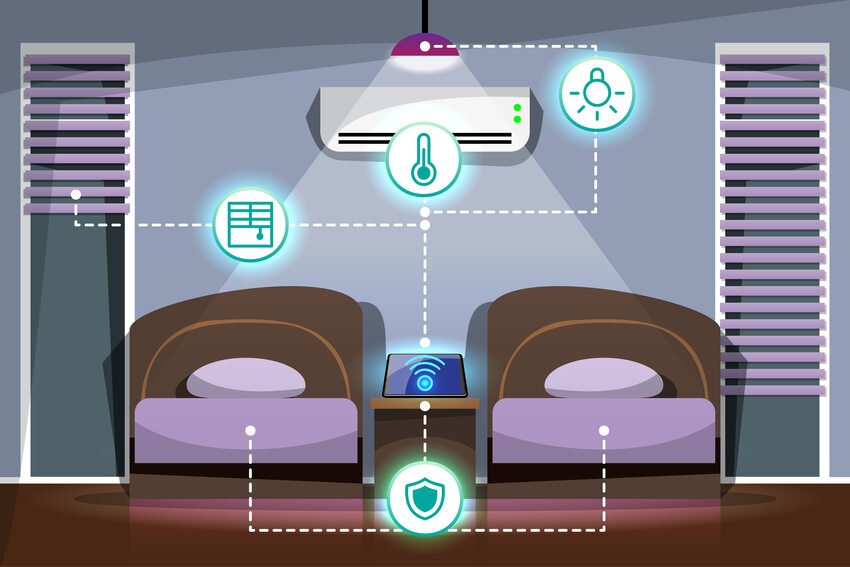Obtaining a company phone number is one of the most important marketing and operational decisions a business owner can make when starting out. A dedicated business line makes it simple to communicate with clients, partners, and suppliers while also enhancing the professionalism of your expanding company.
However, many entrepreneurs and start-ups choose to begin by just utilizing their personal mobile phone number to save money when launching a new firm. This is a blunder for several reasons:
- You won’t be able to distinguish between personal and professional calls.
- Inability to add additional team members or share a single business line with extensions.
- Personal phone lines lack commercial capabilities that expand with the development of your company.
- When personal information is utilized in advertisements, marketing materials, and other promotional endeavors, personal privacy is jeopardized.
- In the eyes of potential consumers, using your personal phone number gives the impression of being unprofessional.
- Robocalls and telemarketers may be received.
- The move to a new business phone number is more challenging the longer your firm is attached to your personal phone number.
What Are the Different Types of Business Phone Numbers?
A standard company phone number or a virtual business phone number are the two major types of business phone numbers available.
Your phone provider can provide you with a standard business phone number, whether it’s for a new second cell phone or a whole office phone system. Alternatively, you may acquire a virtual phone number from a small company telecoms service provider. Virtual phone numbers work with your current devices, including your smartphone, business VoIP phone, landline, and even your laptop.
Let’s face it: we’re all lying to ourselves. We are fast transforming the way we operate and run our businesses. We spend more time on the road; we work from home; we work on the go. One day, we could prefer to work from a café, and the next, from a train. Business phone systems from the past were just not built for the mobility that today’s entrepreneurs want. It’s no longer feasible to be linked to a regular workplace phone. To make or receive phone calls, you must be at your workstation. Traditional corporate phone systems also lack modern capabilities like text messaging, which clients have grown accustomed to. To operate your phone system, you’ll also need to purchase new equipment and gear. On top of that, there’s the huge telecom contract. You’ll also need to purchase new gear and equipment to administer your phone system. That’s on top of onerous large telecom contracts that tie you down for years and make switching providers tough.
On the other hand, virtual phone numbers are designed for today’s professionals and company owners. They eliminate the need for business owners to be physically present in the workplace to make and receive calls. Virtual phone numbers can also be used using a mobile app on your own phone. It establishes a separate business number for you to use with your Business Caller ID to call and text with customers. Services like sms-bus provide virtual numbers that allow you to manage calls and SMS messages efficiently from any device. The same virtual number works with your business VoIP phone, your home landline, and your laptop all at the same time. Virtual phone lines, in addition to these benefits, come with a slew of current professional business capabilities that allow you to operate from anywhere. Here are a few examples:
No additional equipment is required – simply use your existing mobile phone and operate your phone system using a mobile app or online platform on your PC
Stay in the Office or Go Mobile – Your virtual business number will continue to ring no matter where you are, so you’ll never miss a call. Set up business hours so you aren’t bothered when you aren’t available.
Multi-Device Compatibility – Use your smartphone, tablet, desktop computer, laptop, workplace IP phone, or even your landline to do so. Virtual phone service companies utilize sophisticated algorithms to route your business calls to the device that is most convenient for you at the time.
Reduce Costs – Virtual business phone numbers are a fraction of the price of standard business phone systems and calling plans, and tiered pricing depending on employee count is available to fit any budget.
Features for Professional Calling – Get the automated greetings, calling choices, voicemail, and other capabilities that you and your customers are already used to from any large company’s phone system. Plus, you receive cutting-edge capabilities that traditional telecom companies don’t provide, such as business text messaging and team notes for sharing updates on client calls.
Scalability – Your company phone system may expand to accommodate the growth of your staff and as many lines and extensions as you require.
Brand Visibility – Having a single, easy-to-remember phone number for your company makes it simpler to distribute it, put it on marketing materials, post it online, and do anything else you want with it.
Professionalism – Your clients and suppliers will be able to reach the correct individuals on your team with ease thanks to professional call menu choices and team extensions.
Should I get a toll-free or a local business phone number?
The qualities of your business, where you want to operate, and the image you want to leave with potential consumers all factor into selecting the correct business phone number. There are a variety of reasons why a local business phone number is preferable than a toll-free national business phone number.
A local phone number allows you to interact with consumers on a more personal level. It improves your company’s local presence and offers the impression that it is easily accessible to its consumers.
Toll-free numbers, on the other hand, are useful for companies that want to establish a national presence or even a corporate image. Toll-free numbers help to project the picture of a well-established, mature company and can boost the strength of your brand among potential clients.
The Advantages of Having a Local Business Phone Number
If you want to express a local presence, local business phone numbers are ideal. Customers will know they’re working with a favored local business rather than a giant national corporation when they call a local number. A local company phone number makes more sense for a small bakery than a national toll-free number.
For local advertising initiatives, local business phone numbers are also useful. This is especially true if your company intends to target clients in a certain geographic area. Customers frequently enjoy the idea of dealing with someone who lives in the same city or area as them.
Local business phone numbers might also help you develop a presence in your community. A toll-free number appears impersonal and robotic. A local number, on the other hand, offers your company the sense of a pleasant neighborhood small business. This improves lead generation and follow-up. If your primary goal is to build a strong local consumer base, a local phone number is invaluable. It also increases the likelihood of your business appearing in local phone directories and internet searches.
Toll-Free Business Phone Numbers Have a Lot of Advantages
Toll-free numbers provide the impression of a nationwide presence (or the appearance of a national presence). They are thought to be part of larger, more established, and well-run companies. Toll-free numbers can also help build early confidence and credibility without requiring the business owner to do too much branding.
Toll-free numbers, such as 800 numbers, are phone numbers that may be phoned without incurring any charges to the caller. Callers can dial these numbers to contact companies outside of the region without incurring a long-distance charge. Traditionally, toll-free services have offered callers with a free and simple means to contact businesses without worry of incurring long-distance charges.
However, because most national calls are free and most consumers have unlimited calling plans, toll-free phone numbers are no longer essential. Consumers, on the other hand, continue to believe that toll-free lines belong to well-established, well-run national organizations.
One thing to think about is how convenient your phone number is for your consumers. While a local phone number might charge clients in various area codes a long-distance cost for a call, a toll-free number assures that individuals can contact you without having to pay out of pocket. While most cell phone providers provide free unlimited calling, others do not. Calls beyond the local area code are still charged on many landlines. Customers are more inclined to contact your company if the call is free. This might help your company’s sales.
Establishing a national brand that is distinct from your rivals is critical, but difficult to achieve, if this is a significant aspect of your company plan. A toll-free number might help your company stand out. A single toll-free number that is easy to remember for all of your locations may be used on marketing materials, billboards, business cards, and websites. As a result, there is a higher recall rate and more calls.
Which Number Is Best for My Company?
If your company demands mobility, a virtual phone number is unquestionably the best option. A typical business phone line may make sense if you don’t need mobility, but it will almost certainly be far more expensive. However, I believe there is no contest here, considering the advantages of virtual business phone lines, such as cost-effectiveness and professional business characteristics.
Should you go with a local business phone number or a toll-free business phone number for your firm? Choose a local business phone number if you want to establish a local presence and service a local market. A toll-free business phone number, on the other hand, is recommended if you aim to become national or if you want to project the image of a well-established large corporation.
Read Dive is a leading technology blog focusing on different domains like Blockchain, AI, Chatbot, Fintech, Health Tech, Software Development and Testing. For guest blogging, please feel free to contact at readdive@gmail.com.





